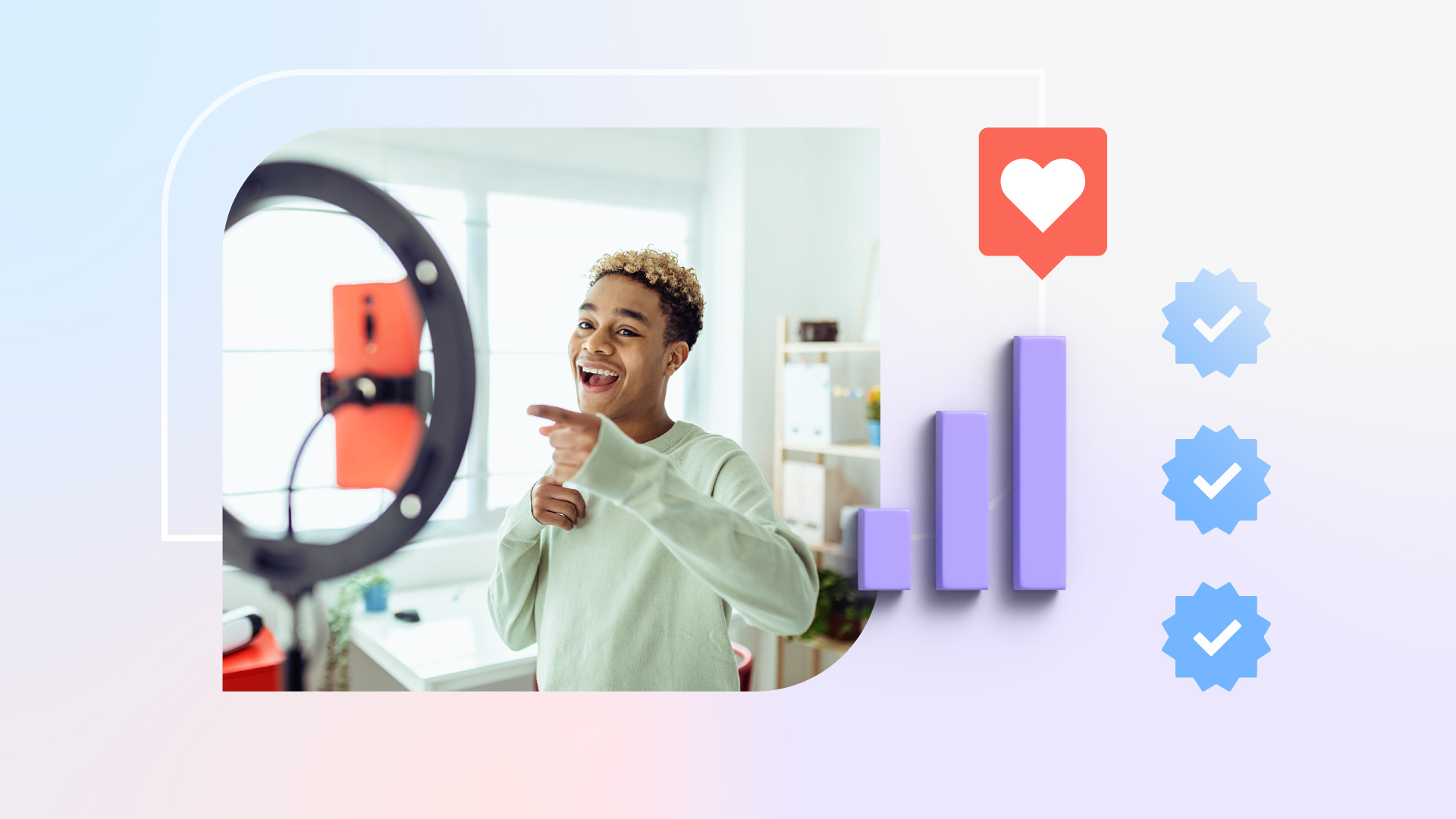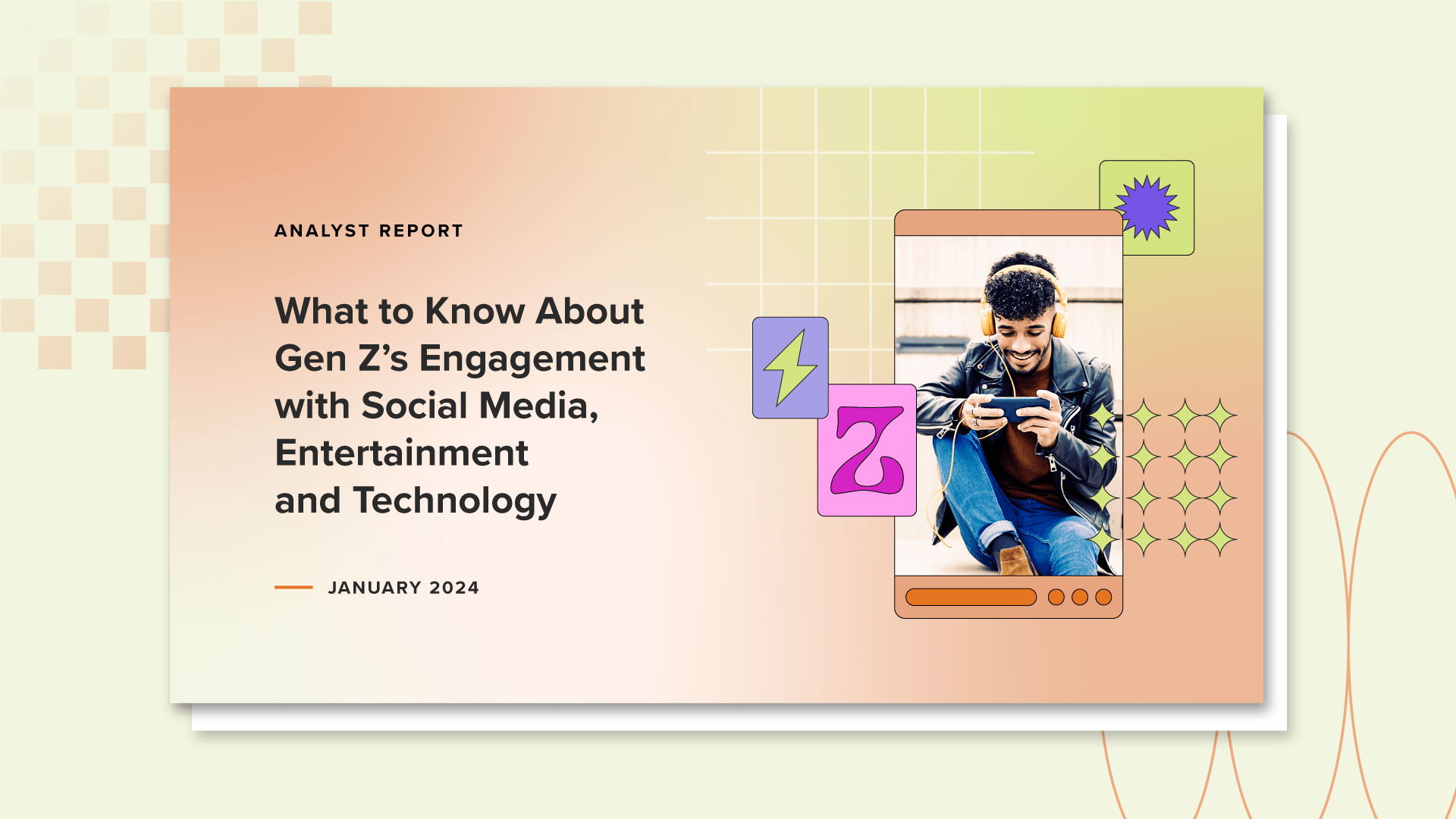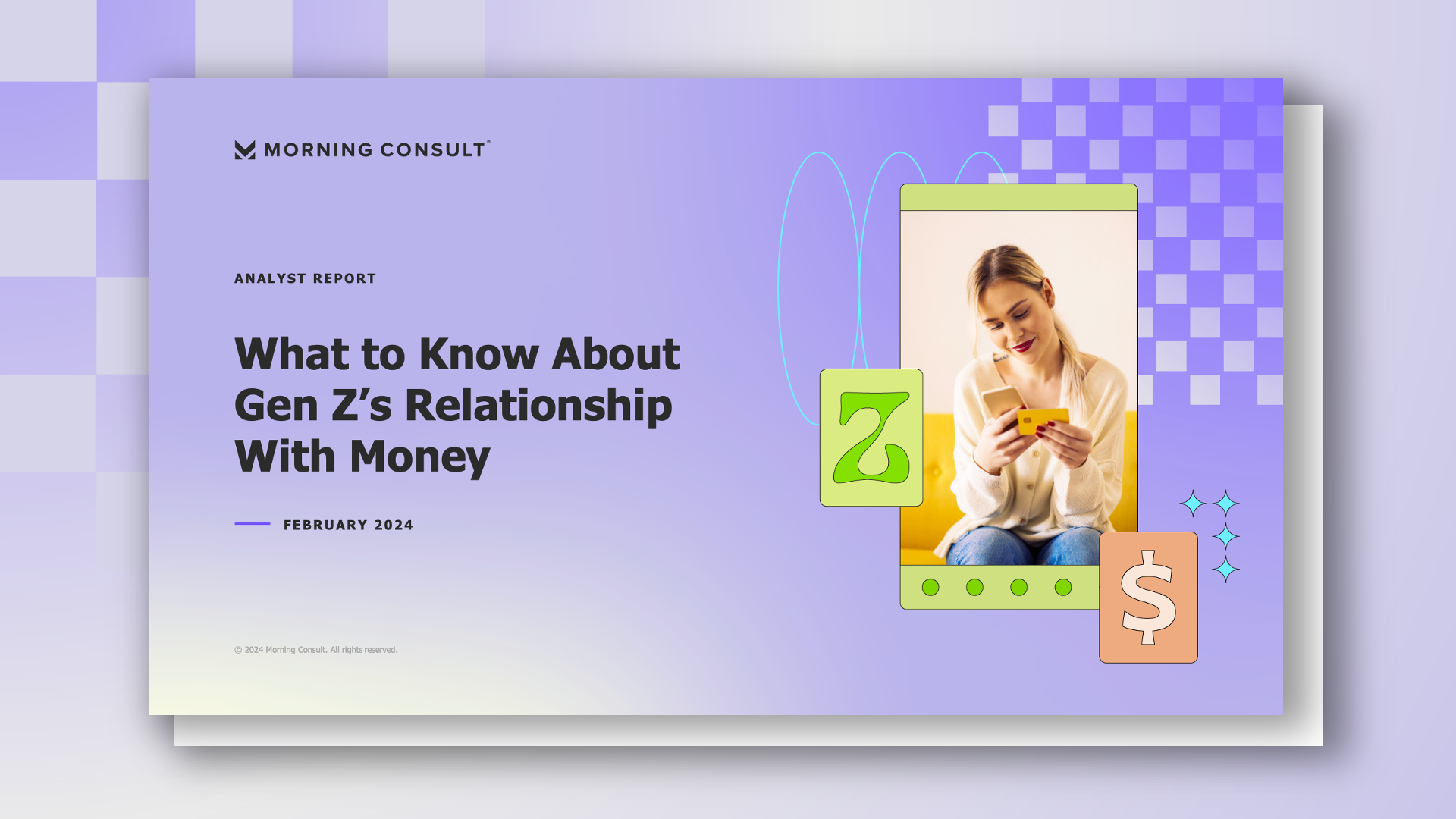Gen Z’s Favorite Brand? Themselves

Key Takeaways
Two-thirds (67%) of Gen Z adults believe building a personal brand is important, and a similar share (61%) said they currently have or are interested in developing one — the highest among any generation on both accounts.
Posting videos online is one of the most popular methods of personal brand promotion today, and Meta platforms are a favorite for doing so: Instagram is Gen Z adults’ go-to destination for sharing brand-building content, while Facebook holds this title for all U.S. adults.
Young adults’ intense desire to create and advertise specific personas only reinforces the dominance of social media platforms in their everyday lives. And as Gen Zers continue to age into the workforce, this habit may also raise questions for employers looking to recruit and retain them.
The term “personal brand” was coined in a 1997 cover story for Fast Company titled “A Brand Called You.” New Morning Consult research shows it is now particularly resonant among members of the generation who were born starting that same year.
Our latest survey finds that more so than the average U.S. adult, Gen Z adults report a clear affinity for the concept, which is generally described as identifying professionally advantageous attributes present within oneself and communicating them publicly like a company would sell products. And in 2024, that means having a social media presence.
Known to be extremely online and unabashed rejectors of workplace status quos, Gen Zers’ embrace of personal branding aligns with existing research. Still, it’s a trend that could yield important societal and economic implications.
Young people are bought in to personal brands
When asked if they had ever heard the term “personal brand,” less than half of U.S. adults (44%) said yes. However, this figure was much higher among Gen Z adults (58%) and, to a slightly lesser extent, millennials (51%).
Gen Z adults and millennials were also most likely to say having a personal brand is important. Meanwhile, the concept lacks salience for most Gen Xers and baby boomers.
2 in 3 Gen Z Adults Say It’s Important to Have a Personal Brand

One force behind Gen Z adults’ outsized penchant for personal branding is the omnipresence of influencer content in the digital spaces where they spend so much time. Constant self-promotion is the name of the game for influencers, who Gen Zers still very much view in an aspirational light. Some of today’s biggest creators post several times a day across various platforms, with career advancement and personal development being perennially popular content topics.
But the Gen Z personal brand phenomenon can’t be explained by internet culture alone: Their coming of working age happened amid waves of mass layoffs and broader economic uncertainty. Under these circumstances, being a known entity with a public portfolio of work safeguards against job insecurity and serves as a calling card to attract better opportunities.
It’s no wonder then that approximately 3 in 5 (61%) Gen Z adults said they currently have a personal brand or are interested in developing one, more than any other cohort. What’s more, large portions of this group are taking steps to actively promote their brands, and video is their mode of choice to do so.
Video killed the thought leadership article
The share of Gen Z adults who said they post video content online to advertise their personal brand (66%) is more than double that who said the same about written content (27%). Other popular promotional activities among Gen Z personal branders include interacting with followers and following influencers in and outside of their chosen industries.
Ultimately, Gen Z adults were more likely than any other major demographic to report engaging in nearly all of the personal brand development activities asked about in the survey. And the same holds true for platform usage.
Meta Platforms Are a Favorite For Personal Brand Building

Instagram, YouTube and TikTok are Gen Z adults’ go-to platforms for personal brand posting — all video-friendly apps that happen to be the generation’s favorite destinations for following influencers. These platforms are also constantly in a cycle of feature imitation, eager to cater to active posters’ usage habits. After all, personal brand building is big business.
But LinkedIn, whose business model depends on professional self-promotion, ranked middle of the pack for all U.S. adults, and even lower for Gen Z adults. The platform is experiencing an inadvertent identity crisis as of late, with some users voicing concerns that its content has become inappropriately personal in the aftermath of Elon Musk’s takeover of X (formerly Twitter). LinkedIn isn’t exactly known for its video chops either — another potential knock with Gen Z forging the personal brand path these days.
As for what kinds of content young adults post to promote their personal brands, advice videos and daily work chronicles are among the most popular. If the 2010s were for helpful job search listicles and how-to-write-a-resume articles, the 2020s thus far are all about “career storytimes” and “day in the life of an [insert position]” vlogs.
To the brand and back
Of course, such habits raise questions. Should employers be OK with employees sharing what goes on at their jobs? Most Gen Z adults (69%) think so, but all U.S. adults (55%) are less sure.
Higher-level debates are also bubbling up about the ethics of self-promotion and how it feeds growth for already huge platforms. These tides, along with age and circumstances, may eventually dull the shine of personal branding for young people. But as of now, it’s an important part of early career life for most of them.
Ellyn Briggs is a brands analyst on the Industry Intelligence team, where she conducts research, authors analyst notes and advises brand and marketing leaders on how to apply insights to make better business decisions. Prior to joining Morning Consult, Ellyn worked as a market researcher and brand strategist in both agency and in-house settings. She graduated from American University with a bachelor’s degree in finance. For speaking opportunities and booking requests, please email [email protected].


